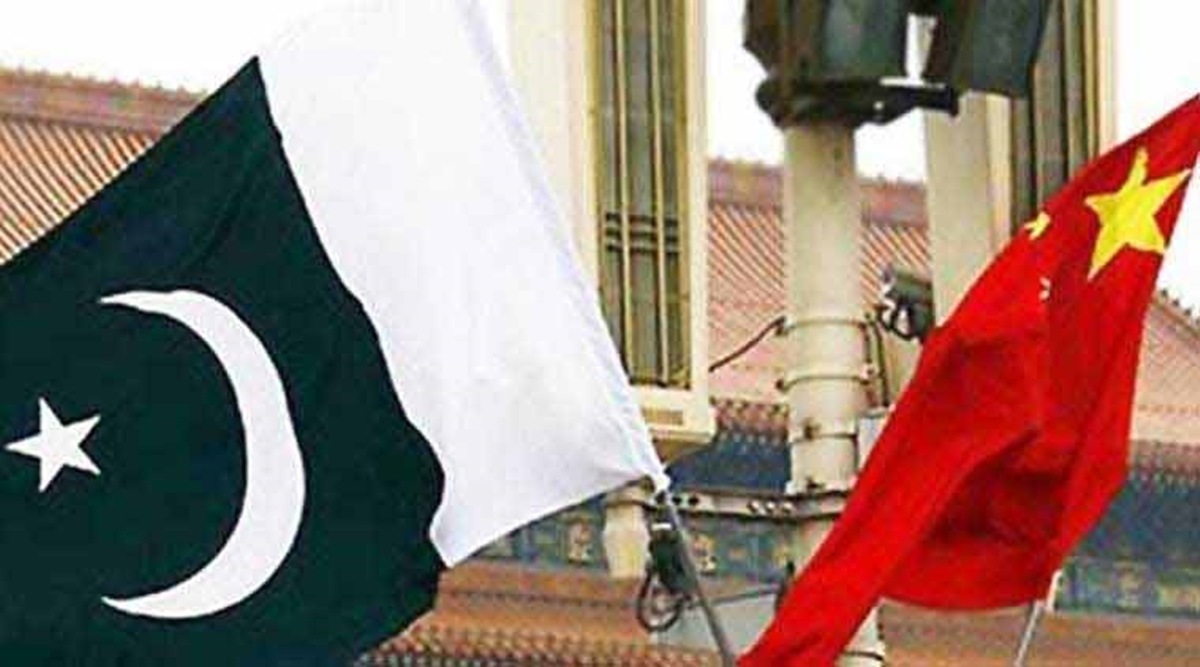The topic of foreign exchange reserves is often overlooked by non-financial experts. Yet, Forex Reserves hold significant importance in assessing a country’s financial position, reflecting its overall economic strength and ability to meet its foreign currency obligations. In this article, we delve into the topic of Pakistan’s concerns over India’s forex reserves, unearthing crucial insights and highlighting their implications.

Image: indianexpress.com
What are Forex Reserves and Why Do They Matter?
Forex Reserves, simply put, represent the total foreign exchange assets held by the central bank of a country. These assets can exist in various forms, encompassing foreign currencies, gold, and other financial instruments. Adequate Forex Reserves bolster a country’s capacity to influence its currency exchange rate and ensure financial stability.
For developing countries like Pakistan, Forex Reserves serve as a lifeline. They provide a buffer against external financial shocks, enable smooth international trade, and inspire confidence in foreign investors. Consider an analogy: an individual with substantial savings has greater financial security during unexpected income disruptions. Similarly, a country with healthy Forex Reserves can better cushion its economy against potential crises.
Now, let’s turn our focus to Pakistan’s concerns about India’s Forex Reserves.
Pakistan’s Concerns: A Deeper Dive
Pakistan’s concerns stem from the perception that India possesses significantly higher Forex Reserves than Pakistan. As of 2023, India holds approximately USD 600 billion in Forex Reserves, while Pakistan’s reserves stand at around USD 17 billion – a substantial difference. This disparity worries Pakistani policymakers, as it implies India has access to a much larger pool of foreign currency to protect its economy during external shocks or financial crises.
Pakistan fears that if its Forex Reserves fall short of India’s, it may face difficulty in repaying its foreign debts or supporting its currency during times of economic stress. This concern is particularly relevant given Pakistan’s recurrent balance of payment crises and the ongoing global economic challenges.
Implications for Pakistan’s Economy
The imbalance in Forex Reserves between Pakistan and India carries several implications for Pakistan’s economy. Firstly, it limits Pakistan’s ability to maneuver during economic headwinds. Insufficient Forex Reserves can leave the country vulnerable to currency devaluation, making it more challenging for Pakistan to engage in international trade and attract foreign investment.
Furthermore, low Forex Reserves can adversely affect Pakistan’s creditworthiness in the eyes of international lenders. This can result in higher interest rates on loans, further exacerbating Pakistan’s financial burden.

Image: weinvestsmart.com
Addressing Pakistan’s Concerns
To address its concerns, Pakistan needs to prioritize increasing its Forex Reserves. This can be achieved through several measures, including:
-
Enhancing exports and promoting foreign direct investment to generate foreign currency inflow.
-
Restricting unnecessary imports to reduce foreign currency outflow.
-
Seeking external assistance, such as loans from international financial institutions, to augment Forex Reserves.
-
Exploring innovative financing mechanisms, like sovereign wealth funds, to attract long-term foreign currency investment.
By implementing these and other measures, Pakistan can aim to bolster its Forex Reserves and mitigate the risks associated with its current imbalance with India.
FAQs
1. Why are India’s Forex Reserves so much higher than Pakistan’s?
India’s larger economy, robust foreign remittances, and favorable investment climate have contributed to the accumulation of significantly higher Forex Reserves than Pakistan.
2. How do Forex Reserves affect a country’s currency exchange rate?
Central banks can use Forex Reserves to intervene in the foreign exchange market, buying or selling their own currency to influence its exchange rate.
3. What are the potential consequences of having inadequate Forex Reserves?
Inadequate Forex Reserves can lead to currency devaluation, difficulty servicing foreign debt, and a loss of investor confidence.
4. How can Pakistan increase its Forex Reserves?
Pakistan can increase its Forex Reserves by promoting exports, attracting foreign investment, and exploring innovative financing mechanisms.
Pak On Indian Forex Reserves
Conclusion
Pakistan’s concerns over India’s forex reserves are legitimate and warrant attention. The disparity in Forex Reserves between the two countries highlights Pakistan’s need to prioritize policies that bolster its financial resilience and ensure long-term economic stability. By diversifying its economy, attracting foreign investment, and prudently managing its foreign currency outflows, Pakistan can address its concerns and lay the foundation for sustainable economic growth. In today’s interconnected global economy, maintaining adequate Forex Reserves has become more crucial than ever before, and it is imperative that Pakistan takes proactive measures to secure its financial future amidst an ever-evolving geopolitical landscape.






